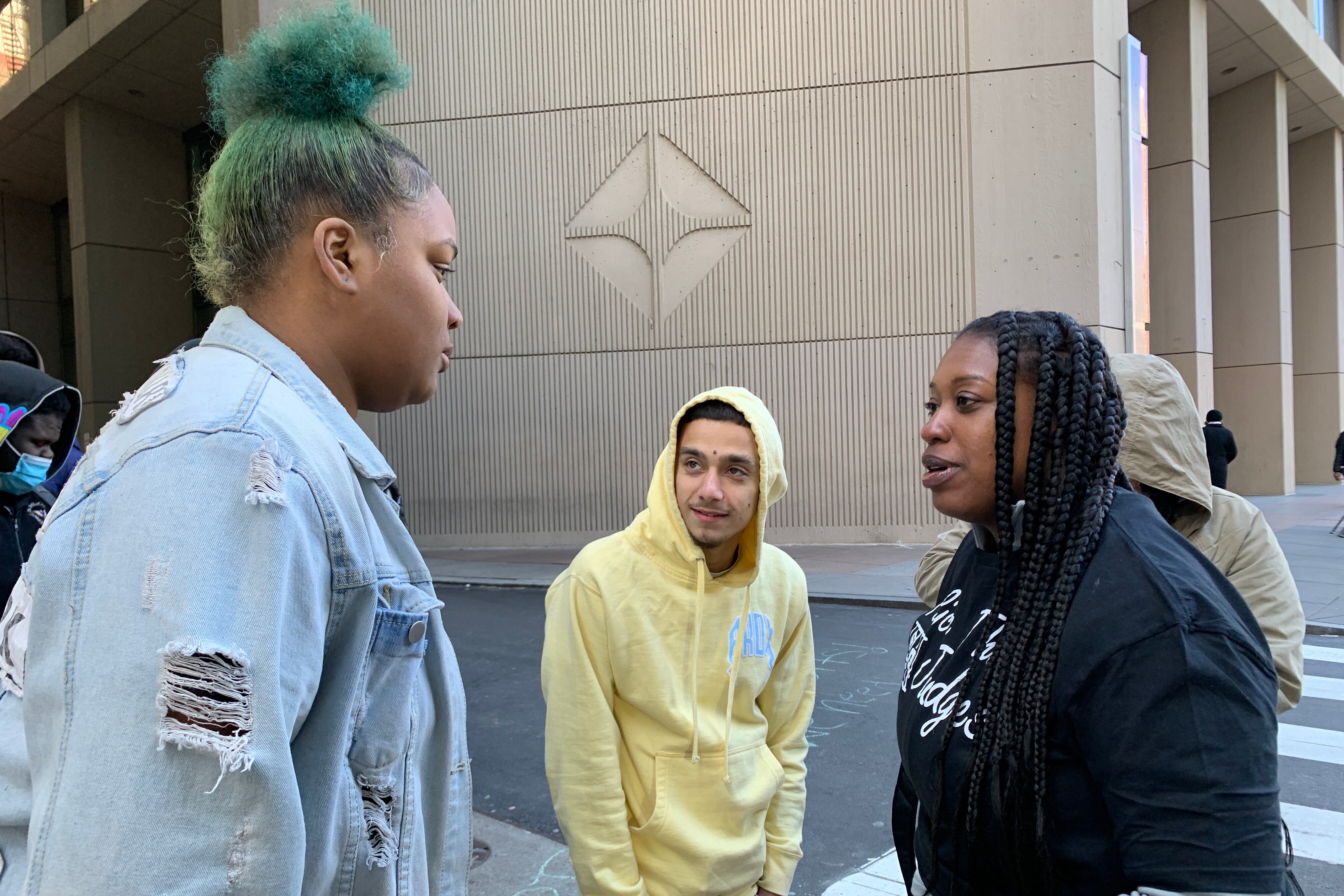Philadelphia’s juvenile justice system needs an overhaul to more fairly treat girls who are arrested and provide them with effective services and prevention programs, according to a new report from District Attorney Larry Krasner’s office.
Far fewer girls in the city are arrested than boys, the report found, but they are more likely to be arrested for incidents that occur in school or at home — one in three, compared to one in five boys.
“Girls without question are in a unique position in the juvenile justice system,” Krasner said at a Thursday press conference releasing the report. “They are arrested in small numbers, and they are arrested for very different kinds of offenses.”
One of the main recommendations from Krasner’s office involving education is that there should be a ratio of one counselor per 250 students in city schools, down from the current ratio of one per 650. In March, the Philadelphia Board of Education passed a budget that provides additional counselors to the highest-needs schools, although it doesn’t go as far as what the report calls for. Doing so would require hiring 240 more counselors at a cost $17.4 million.
The report — “Overlooked or Overscrutinized: A Case Study of Girls’ Justice in Philadelphia and Implications for the Design of a Fairer System” — studied all juvenile arrests in 2019.
In addition, the report said that every school should have two counselors on staff, regardless of its size, “with at least one of these counselors identifying as a woman to ensure that girls have a safe space if they do not feel comfortable confiding in male-identifying counselors.”
The student-counselor ratio was decimated due to budget cuts a decade ago and has not been fully restored.
The study looked at all 2,242 youth arrests in 2019, and followed all the cases through their disposition as of the end of 2022, said Adam Serlin, one of the report’s authors.
He said that nationally, 69% of the juveniles arrested are boys, but in Philadelphia, 81% are boys. The data also shows a stark racial imbalance: While about half of the city’s population is Black and 23% Hispanic, 95% of the girls arrested are Black or brown.
Black girls in particular “are overpoliced,” said Philadelphia Public Defender Keisha Hudson. “They are perceived as more mature, more aggressive. They’re perceived as adults, in our schools in our justice system, and they’re treated that way. So I think this is an important first step.”
While boys make up the majority of youth in our system, “the number of girls is growing at a rate that should concern us all,” Hudson said.
“The most practical implication of this is … the existence of fewer programs and services for girls in the juvenile justice system,” he said. Most of the existing programs are for boys only.
The “gender skew” also leads to much less research on girls.
Students protest for change in the system
A group of about 50 students, male and female, rallied outside the building across from City Hall where the Krasner press conference was held. They demanded reforms to juvenile justice in the city.
“They are putting girls in jail for fights in school,” said Kendra Vandewater, executive director of the nonprofit YEAH Philly, which stands for Youth Empowerment for Advancement Hangout. It works with young people who have been impacted by violence to offer them services and reduce arrests. The group chanted “free our youth” and “stop judging kids as adults.”
Kassidy Tingle, 20, one of the protesters, said that she was arrested for drug possession at age 17 when she was a student at Camelot Academy, an alternative school for students who leave traditional high schools for disciplinary or attendance reasons. She said she was called racial slurs by the police and not given the help she needed.
“They take advantage of their authority and don’t respect us,” she said. “They don’t see us as humans.”
The data shows that more girls are arrested for assault than any other reason, 44%, said report co-author Ciara Sheerin. That’s nearly double the rate for boys. And a major reason so many girls are arrested is a provision in state law that labels as a felony any assault on a member of a “protected class.”
Under the law, Sheerin said, teachers and other school staff, including school resource officers, are considered a protected class. So a student who pushes a teacher or a school resource officer, even if there is no injury, has to be charged as a criminal assault, she said.
Marsha Levick, head of the Juvenile Law Center, noted that she wrote a law journal article 20 years ago on this topic. “It’s dismaying to note that ... things haven’t changed,” she said.
“It’s not enough to give everyone the same,” she said. “What we’ve learned over time … is that when we think about the involvement and interaction of girls with the justice system, they have very specific needs. And we can’t assume that what works for boys will work for girls.”
Dale Mezzacappa is a senior writer for Chalkbeat Philadelphia, where she covers K-12 schools and early childhood education in Philadelphia. Contact Dale at dmezzacappa@chalkbeat.org.






